Drag Artists on What Pride Means Today
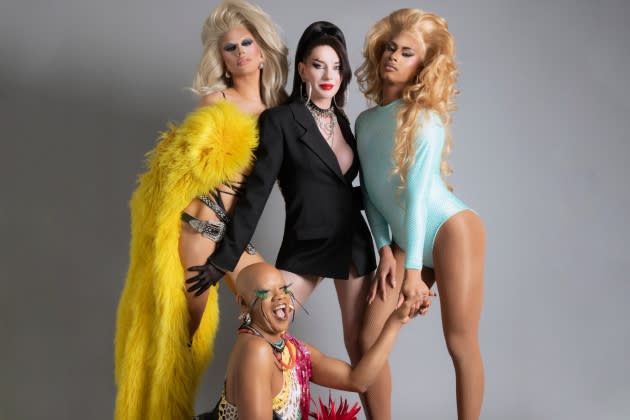
Just a few days into the kickoff of June’s annual Pride celebrations, the Human Rights Campaign, America’s largest lesbian, gay, bisexual, transgender and queer civil rights organization declared a national state of emergency for members of the LGBTQ community in the U.S. A historic announcement in the organization’s four-decade history, due to “an unprecedented wave of anti-LGBTQ+ legislation in 2023.” According an HRC report, more than 75 anti-LGBTQ bills have been signed into law this year alone, more than doubling last year’s number.
This sobering reality sits in contrast with the endless amount of marketing seen during the month of June, when brands tap Pride to market products, which tends to spark conversation around what true allyship between brands and the LGBTQ community looks like. Pride might be a celebration now but it was, and in many ways still is, a protest.
More from WWD
Hubert de Givenchy's 1970s Black Cabine Models Made a Statement About Diversity
Eye Candy: A Look at the Fragrance Foundation Award of the Past
Drag performers and transgender individuals, some of the most visible and vulnerable within the LGBTQ community, are often at the forefront of the rights movement, and many of them don’t like what they’re seeing right now.
“I never thought I would ever see the day where we would go backward,” said Billboard-charting dance artist, Kevin Aviance — who identifies as an artist, with drag being their medium — said while getting ready for WWD’s cover shoot. “Performance changed my life and it saves my life, and to know that the queens out there can’t perform, you know, it just hurts my soul so much.”
One of the recently proposed anti-LGBTQ measures aimed to squelch the drag community. The Tennessee Drag ban wanted to ban drag performers, drag queens and kings from performing in public. Earlier this month, however, a federal judge ruled that a state law limiting public drag show performances represented an “unconstitutional restriction on the freedom of speech.”
“I think it’s bizarre that people actually think the art of drag is a problem, and somehow harmful to children,” drag entertainer Mo’Riah told WWD. “As drag queens, we’re just performers who dress up and entertain the audience — just like the people you see on television every day. What’s the difference? Drag queens don’t harm anyone!“
Today the art form of drag is a global phenomenon, with Emmy award-winning TV shows like “RuPaul’s Drag Race” and HBO’s “We’re Here” leading the way in the conversation about what queer life looks like in the U.S. and beyond. Like in the Stonewall uprising, a watershed moment in the gay rights movement, drag queens are leading the charge and pushing for change, which is why Bosco, Kevin Aviance, Aquaria and Mo’Riah are the cover stars of this year’s WWD Pride issue.
Here the cover dolls — a common slang used within the community — share what they’re up to, plus their thoughts on brands as allies and some of the queer-owned brands they love.
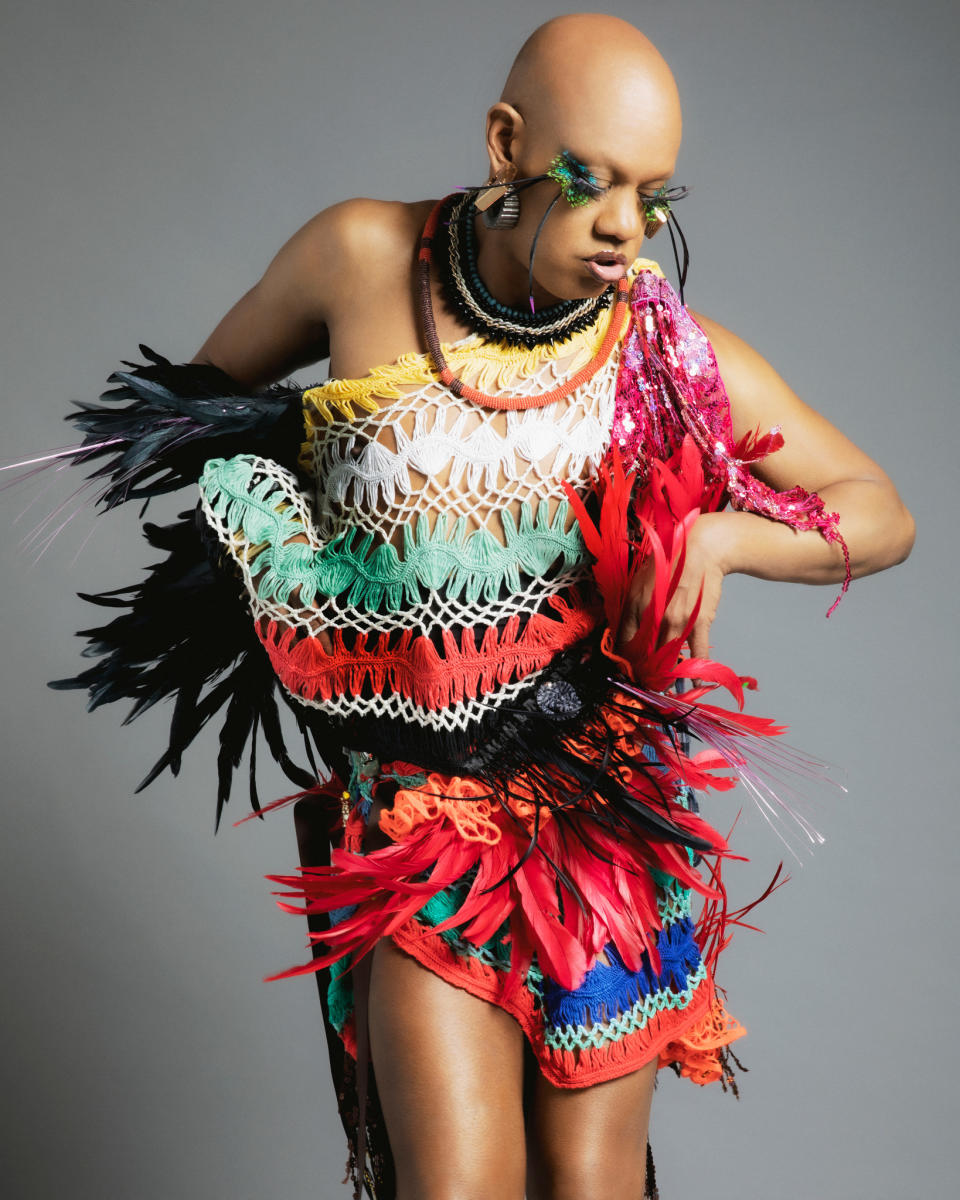
Kevin Aviance | Harlem, NYC
WWD: What current projects are you working on?
K.A.: I am working on a new EP and a tour, “The Cunty Ball Tour,” starting in July.
WWD: Queerness and drag are ostensibly mainstream in pop culture, yet various anti-LGBTQ bills are being formed across the U.S. How has this impacted the community?
K.A.: This is very upsetting to me. Living in New York City I am in a bit of a bubble. And yes it has impacted my community. Drag queens are amazing people and it takes a lot to be one and to be able to have an income for being an entertainer. I don’t really think they thought this whole thing out. You can’t keep a good queen down.
WWD: The recent “Drag Isn’t Dangerous” telethon helped raise a significant amount of funds, is there more that fashion brands and companies could be doing to support LGBTQ causes?
K.A.: Of course, they need to get together. Like crazy glue. Every fashion brand, every wig company in the world, Uber and Lyft, even Domino’s Pizza should get involved. Come one, come all. We need your help! Work with us, work with us in the most authentic way that you can, let us be your queer consultants!
WWD: There is a conversation among the LGBTQ community about allyship and what is authentic. For example, the recent issue with Target pulling merchandise. What can brands do in terms of marketing and programs to form an authentic relationship with the queer community beyond Pride in June?
K.A.: Any brand that supports Pride should support our community 365 days of the year, until the next Pride. That’s how brands can build authenticity with talent and creators within the LGBTQIA+ communities.
WWD: What’s your favorite queer-owned brand?
K.A.: Christopher John Rogers, LaQuan Smith, Brandon Blackwood, and of course Telfar!
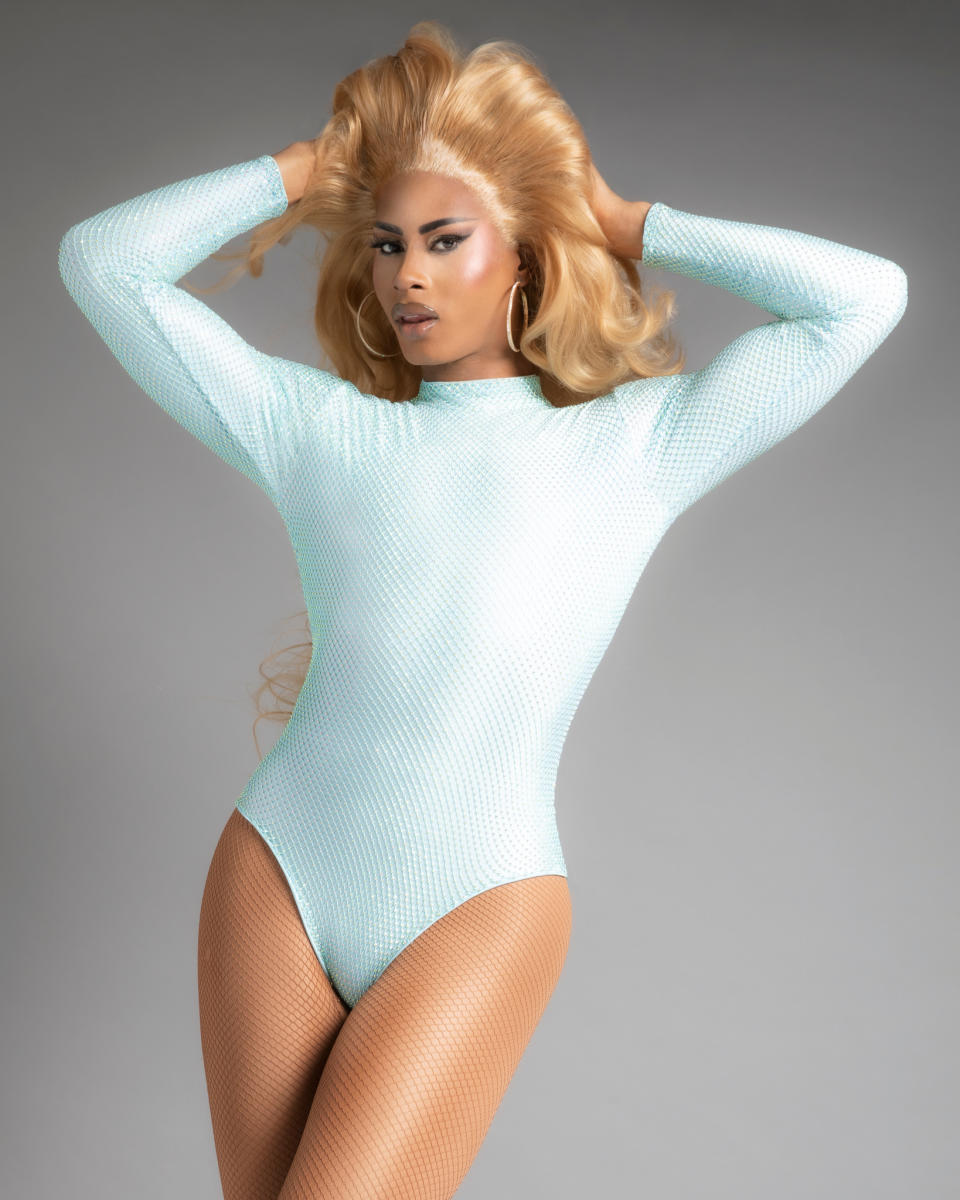
Mo’Riah | Brooklyn, NYC
WWD: What current projects are you working on?
M: Currently working on perfecting my drag career and elevating!
WWD: Do you think there’s more fashion companies could be doing to support LGBTQ causes?
M: Yes, the same companies that like to hire drag queens during Pride month should be donating and fighting for us, and stop the rainbow washing.
WWD: What do brands need to do to avoid “rainbow washing?”
M: Continue to support us all year-round.
WWD: What’s your favorite queer-owned brand?
M: Brandon Blackwood and Tuckituppp.
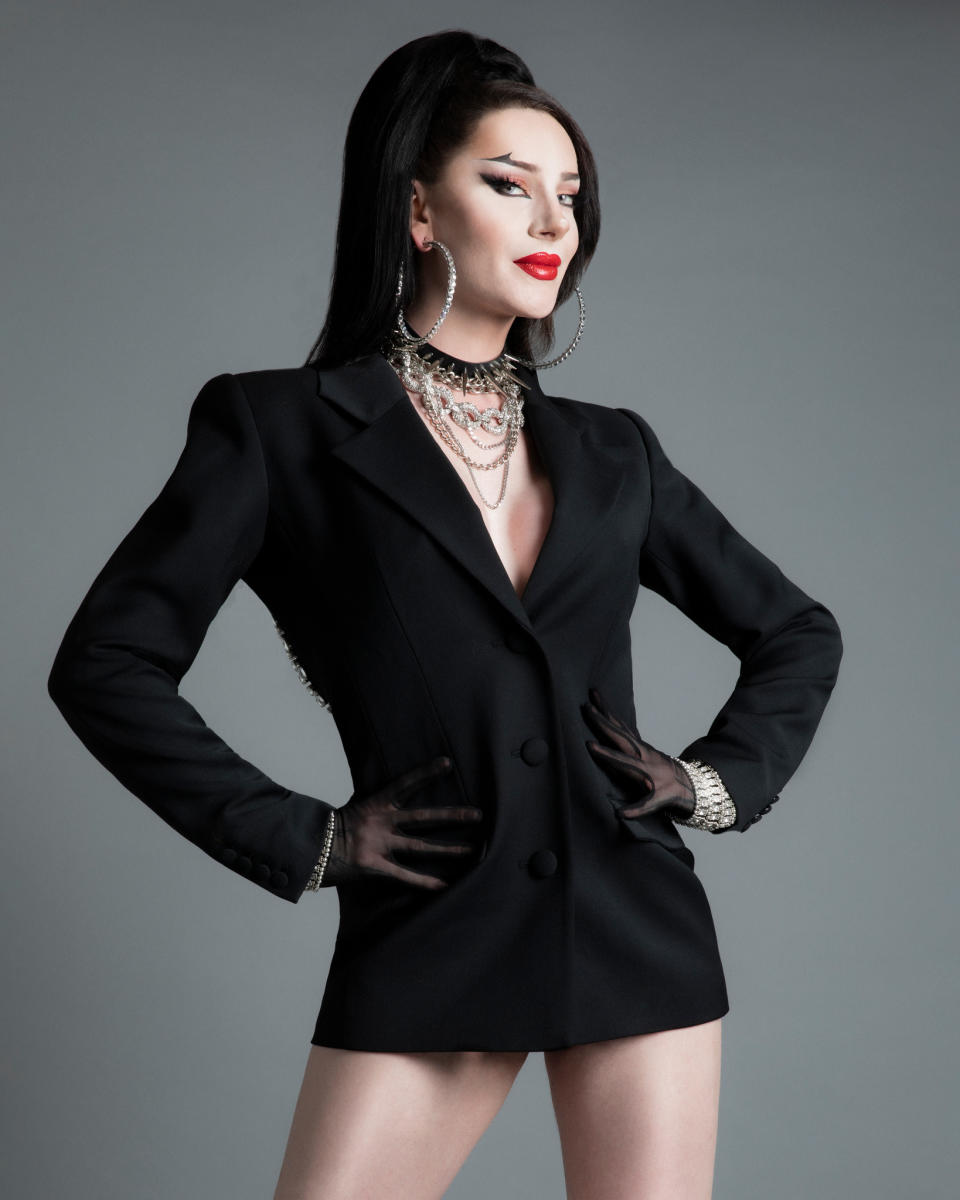
Bosco | Seattle, Washington
WWD: What current projects are you working on?
B: We just released a documentary about my transition called “Face of Bosco” that you can find on the “Drag Race” YouTube channel. Other than that, I’m prepping for tour and for a Vegas residency later this summer.
WWD: How has the LGBTQ community, and the drag community, in particular, been impacted by the rising anti-LGBTQ bills?
B: It’s terrifying, it’s cruel, and most of all it’s incredibly stupid. I have friends in Florida that are having to pick up their lives and move. When I was in Tennessee for a show last week, I had several queens come up to me and ask if I was scared to come here and, honestly, I was a little. It makes me nervous to travel as much as I need to for work so I can’t imagine the anxiety it’s causing for the queer people that live there.
WWD: The ACLU Drag Defense fund, for example, helped raise a good amount of money for the community — do you think there’s more fashion could be doing?
B: The fashion and beauty industries would not exist in the way that we know them without the contributions of LGBTQ people. As far as I’m concerned those industries should be doing EVERYTHING they can. Donate, openly support, loudly condemn bigots, lift up and amplify queer voices. Make it clear that you as a brand support the queer people that have always supported you.
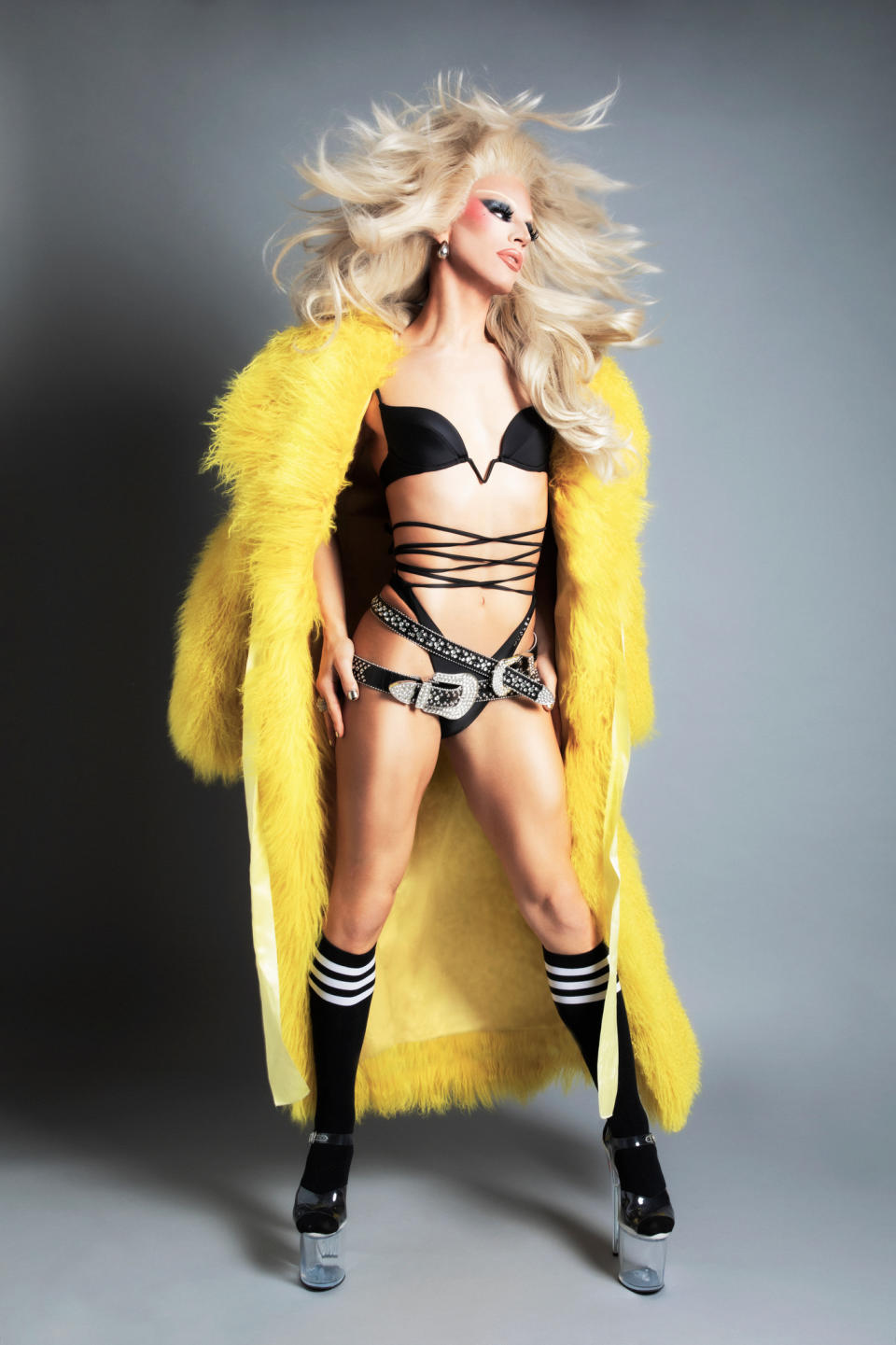
Aquaria | Brooklyn, NYC
WWD: What current projects are you working on?
A: Earlier this year I had a five-month long residency at Drag Race Live! in Las Vegas, and now I’m back home in New York DJing and performing in between traveling around the world for other events. Later this year, I join the Werq The World tour for their legs in Asia, Australia, Mexico, EU and U.K.
WWD: How do you feel the recent anti-LGBTQ sentiment has impacted the community?
A: The way the world has historically treated LGBTQ people through generations has been mainly through marginalization and alienation. Despite Pride being a seemingly more widely accepted concept than ever, it’s very exciting to see shows like “RuPaul’s Drag Race” thrive, but also equally as baffling to see such hateful pushback from people who are convinced they have power against us. It’s become increasingly more apparent that despite the benefits of being more visible than ever with stronger allies than ever, hateful groups have also felt more emboldened to act on their fearful ideologies. These baseless bills are meant to instill fear in people, but anyone who has ever attended a drag show may be able to tell you, drag performers are not your enemy. We are not dangerous. We’re not indoctrinating your children. We will not be made a scapegoat for their fear, and having confidence in that makes me, my peers and fans of drag know that we will not be going anywhere.
WWD: Is there more fashion brands and companies could be doing to support LGBTQ causes?
A: Absolutely. It may seem hard for a brand to try to show real support for these causes without looking like they’re pandering to my community for gay dollars, however, brands seem to have no problem taking our money which makes me think they ought to feel a lot more comfortable in putting our money where their mouths are and actively fighting for us. Some brands work overtime to show their tangible support to our community, and I’d like to think we all recognize and appreciate those genuine efforts. On the other hand, I’m sure it’s no secret that we could name countless large corporations and smaller businesses who go silent when they could be speaking up and defending us against political pushback on LGBTQ people. At the end of the day, it seems like money talks. When corporations fund LGBTQ individuals and groups, it’s nice to feel the support even if it can sometimes just feel like a PR stunt. Everyone can do a whole lot more to treat one another with kindness and respect and to those brands who’ve conveniently forgotten about us. Trust, we notice and will hopefully remember down the line when we’ve got to spite you for your competitors, to say the least.
Launch Gallery: What Pride Means Today with Aquaria, Bosco, Mo’Riah and Kevin Aviance
Best of WWD

